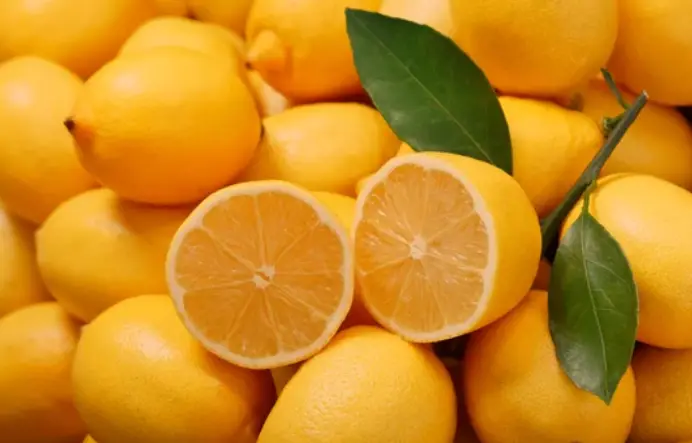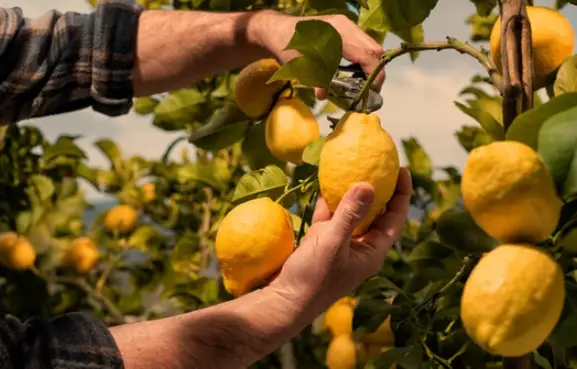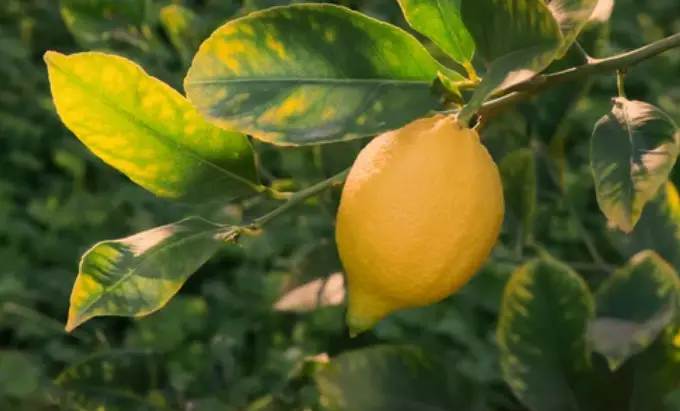Lemons are a common ingredient in kitchens and a reviving addition to many delectable dishes because of their bright yellow color and sour flavor. A puzzling debate yet persists: Is the lemon a fruit or a vegetable?
You might be surprised by the response because it is rooted in the fascinating realm of botanical and gastronomic classifications. In this blog post, we’ll examine lemons’ complicated makeup and determine whether they qualify as fruits or vegetables.
Is Lemon a Fruit or Vegetable?

Lemon is botanically classified as a fruit. It is the mature ovary of a flowering plant and contains seeds, which aligns with the botanical definition of a fruit.
While lemons are not typically consumed in the same way as sweet fruits and are often used to enhance the flavor of dishes and beverages, their structure and origin firmly categorize them as fruits from a botanical standpoint.
Botanical Classification: A Citrus Revelation

Is Lemon a Fruit or Vegetable
To unravel the mystery of whether lemons are fruits or vegetables, we need to consult botanical science.
According to botanical definitions, a fruit is the mature ovary of a flowering plant, typically containing seeds.
In the case of lemons, they meet this criterion perfectly. Lemons belong to the citrus genus, along with oranges, limes, and grapefruits, which are universally recognized as fruits due to their seed-bearing nature.
The Anatomy of a Lemon
Lemons have a distinctive structure that aligns with their botanical classification as fruits.
They possess a tough outer rind, also known as the zest, which protects the juicy, pulpy interior. This pulp is divided into segments, each containing seeds.
From a botanical standpoint, the presence of seeds directly confirms the fruit status of lemons. Moreover, lemons develop from the ovaries of their flowers, further solidifying their position in the fruit category.
Culinary Usage and Confusion

The culinary world, however, sometimes blurs the lines between botanical definitions and practical use. In cooking, the term “vegetable” is often associated with savory, non-sweet plant parts.
This distinction has led to some confusion regarding lemons, as they are not typically consumed in the same way as other fruits.
Lemons are rarely enjoyed on their own due to their sourness, and they are more commonly used to enhance the flavor of dishes and beverages.
The Culinary Vegetable Conundrum
While lemons might not be enjoyed like traditional fruits, they don’t fit the botanical criteria for vegetables either.
Vegetables are derived from various parts of plants, such as roots (carrots), leaves (lettuce), stems (celery), and even flowers (broccoli).
Lemons, however, do not arise from any of these plant parts. Thus, attempting to classify lemons as vegetables based on their culinary usage leads to further confusion rather than clarity.
Table: Lemon – Botanical Classification and Culinary Usage
| Aspect | Botanical Classification | Culinary Usage |
|---|---|---|
| Structure | Fruit (mature ovary) | Flavor enhancer |
| Seed presence | Contains seeds | Not typically eaten |
| Plant part of origin | Flower ovary | N/A |
| Culinary categorization | Not a vegetable | Culinary enhancer |
| Nutritional significance | Rich in vitamin C | Flavor addition |
| Historical importance | Widely traded | Culinary and symbolic |
Note: This table provides a summary of the botanical classification of lemons as fruits and their role in culinary practices.
The Verdict: Lemon’s True Identity
After careful consideration of both botanical definitions and culinary classifications, it becomes evident that lemons are unequivocally fruits.
They meet all the criteria of being the mature ovary of a flowering plant, containing seeds and developing from the plant’s reproductive organs.
While their sour taste might set them apart from traditional sweet fruits, their botanical classification remains steadfast.
The question of whether lemons are fruits or vegetables highlights the intriguing interplay between botanical science and culinary practices.
While lemons might not be devoured like apples or bananas, their unmistakable structure and origin solidify their place in the fruit category.
So, the next time you’re sipping on a glass of lemonade or adding a dash of citrusy flavor to your culinary creations, remember that the lemon is indeed a vibrant, tangy, and unequivocal fruit.




